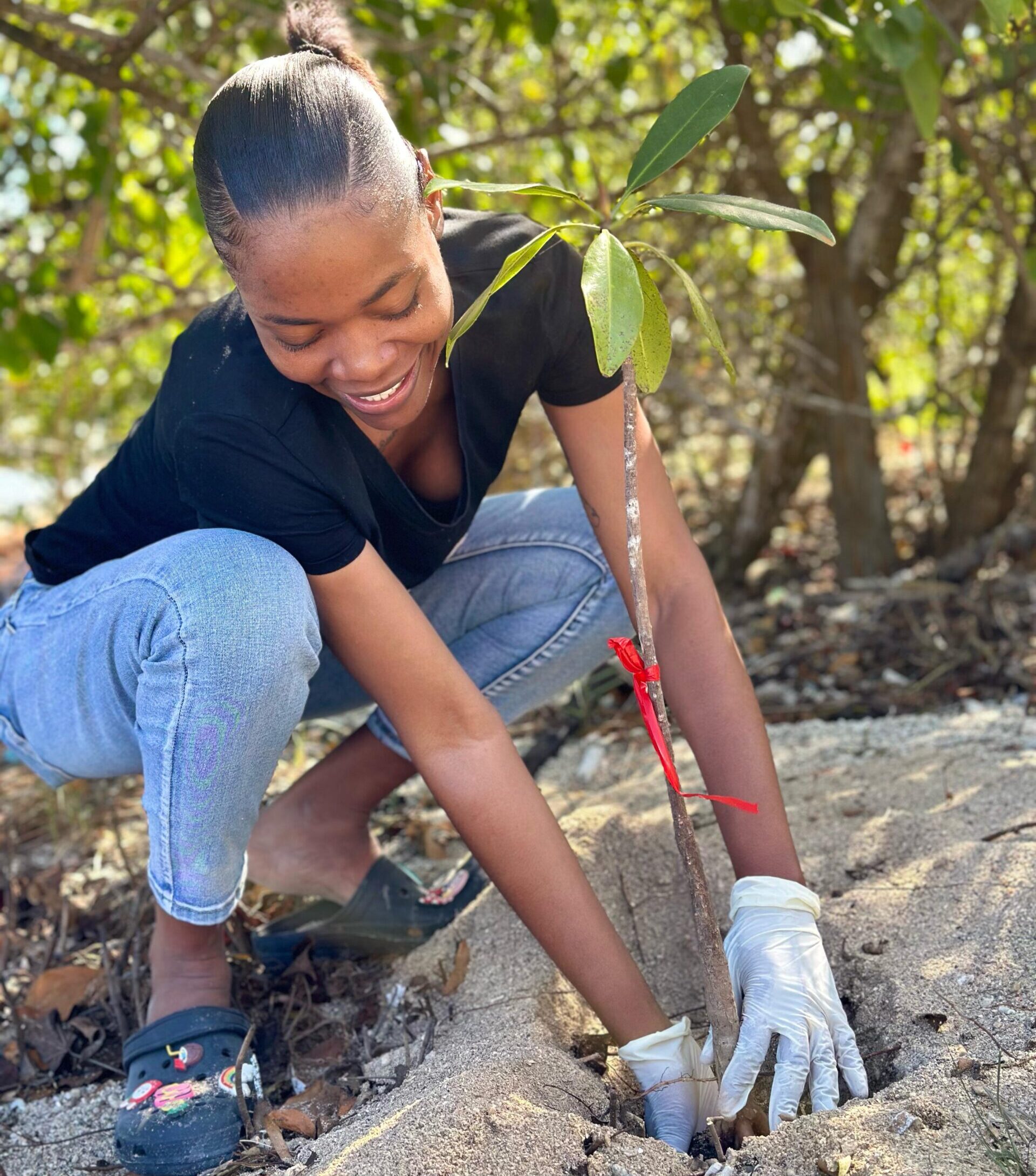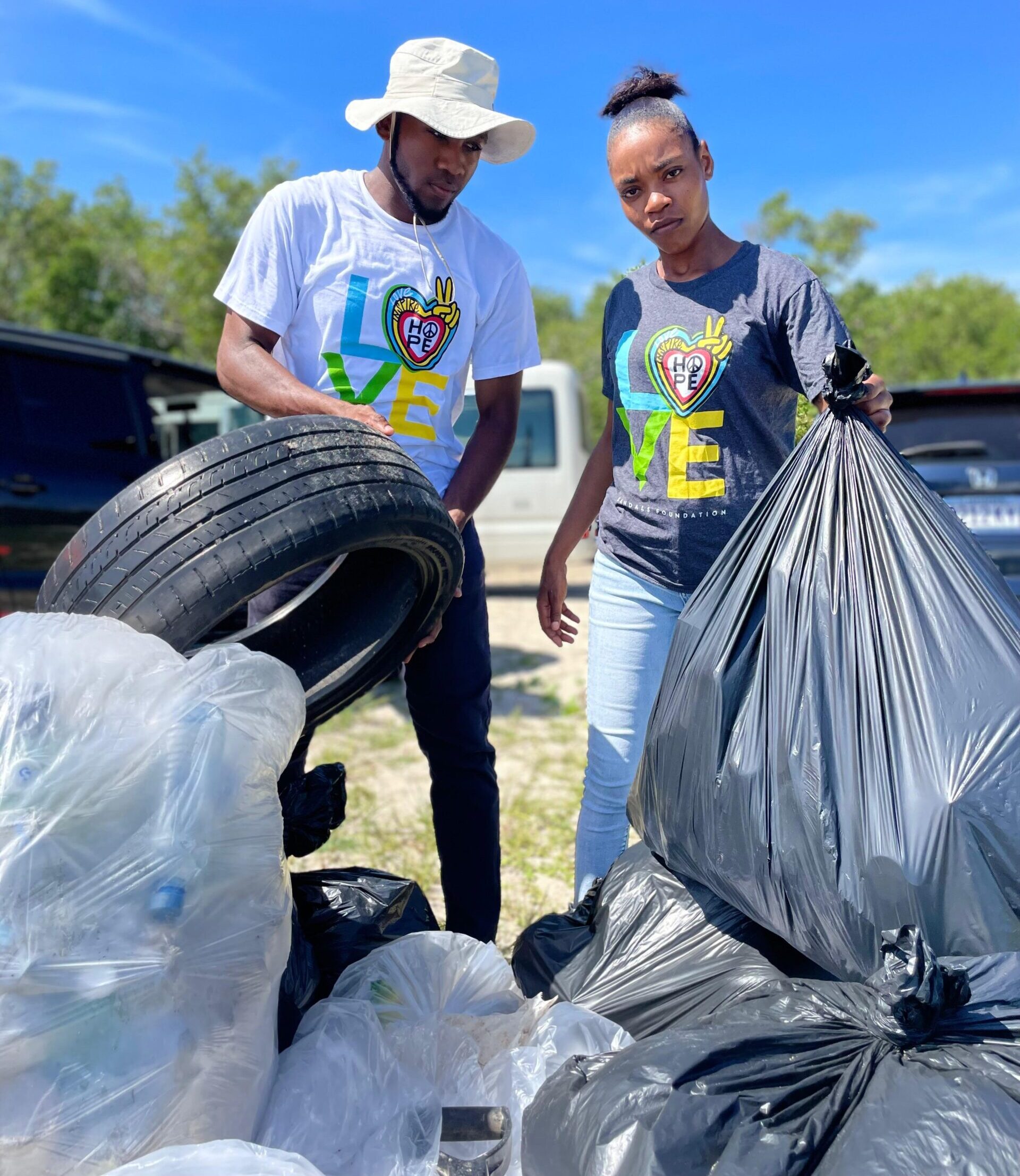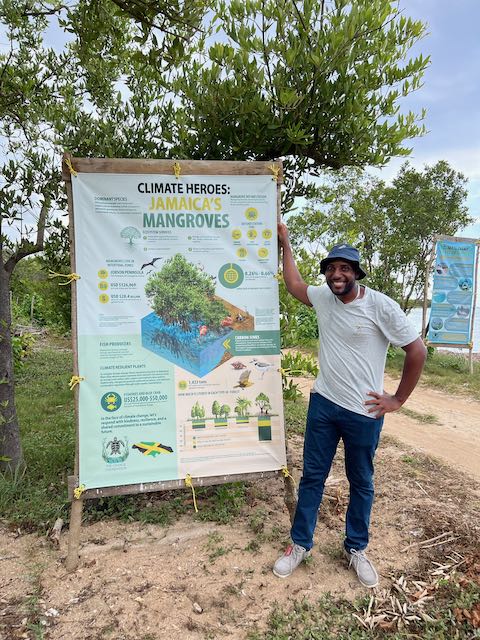Article by Júlia de Marins, Learning Coordinator for the Next Generation Climate Advisory Board

As the world faces escalating climate challenges, local communities hold the power to make big impacts, especially when led by the passion and innovation of young people. In the vibrant coastal town of Falmouth, in Jamaica, Global Greengrants Next Generation Climate Board grantee partner Sea the Change Foundation, a youth-led initiative launched in 2023, is transforming a private family property into a thriving protected area focused on ecotourism, leisure, environmental education, and conservation.
This innovative project is a model for how communities can come together to protect their territories, ensure that natural areas remain accessible to the local population, and increase coastal climate resilience. When communities carry out local projects like these around the world, they play a key role in mitigating the climate crisis and creating sustainable climate solutions that center the needs and leadership of the people who face the deepest climate impacts. As funders, supporting them is an effective and just way to push back against the climate crisis.

Why a protected area?
Falmouth has seen rapid development as a tourism destination, but it has also grappled with environmental issues like pollution in its drains and shorelines. Additionally, unauthorized sand mining has damaged the extended mangrove forest, reducing its resilience to climate change.
To address these issues, the foundation’s founder—Mikhail Jobson, now 33 years old—initiated a significant beach cleanup 10 years ago, with occasional voluntary support from local community groups and students, focusing on debris removal and implementing regulations to control beach usage. However, the primary recreational areas remain heavily polluted due to the lack of garbage receptacles, debris washed in from the ocean, and inconsistent waste management practices. Additionally, individuals from other parts of the island often enter the area to illegally harvest mangroves, further exacerbating the problem.
Turning private properties into protected areas presents both challenges and opportunities. The beach and mangrove areas are privately owned by local families, which strengthens community ties but creates resource constraints for proper protection and maintenance. As a result, some property owners view selling or commercially developing the land as their only financial option. Sea the Change aims to engage these owners in a shared vision for the future, emphasizing sustainable environmental conservation that benefits everyone.
Grantmaking for change
In 2024, Sea the Change received its first grant from the Next Generation Climate Board to support crucial conservation initiatives. They have used the grant to restore mangroves, install educational signs and flags, maintain beach cleanups, and replace benches—transforming the beach park into a well-maintained, informative space for the community, visitors, and students who participate in environmental education programs with local schools.
Building on this success, Sea the Change has developed management plans for the mangrove forest and a proposed fish sanctuary in alliance with a local fishing association. These plans promote sustainable mangrove management and fish nurseries that align with environmental protection, positioning the mangrove forest and proposed fish sanctuary as a long-term educational hub for conservation and responsible marine resource use.

Vision for the future
Long-term, the project envisions creating alternative livelihood opportunities, building tree houses, expanding ecotourism opportunities, and optimizing space usage to sustainably maintain the ecosystem. Reducing the invasive vegetation in certain areas, for example, could make way for these elevated structures and for mangrove restoration, offering visitors a unique experience while allowing them to observe local flora and fauna with minimal environmental impact.
Sea the Change is creating a sustainable legacy for Falmouth by transforming private land into a protected area that balances ecotourism, education, and conservation. Through the commitment of local youth, community involvement, and newfound support, this initiative is building a future where Falmouth’s natural resources and cultural heritage thrive, protecting part of the coast of Jamaica for generations to come. Funding local, youth-led projects like these is a critical part of combatting the climate crisis.
